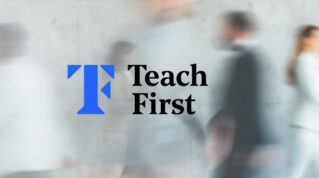Inclusive pedagogy should be built into the fabric of every initial teacher training programme, rather than bolted on as an afterthought, argues Jacqui Ver Loren van Themaat
Many people across the sector have called for more in-depth knowledge in initial teacher training (ITT): more behaviour-management strategies, more focus on subject knowledge, and more special educational needs and disability (SEND) training. The reality, of course, is that not everything can be achieved in just one year of training.
In the case of SEND, while detailed knowledge about specialist diagnostic categories and child development is important, it is not realistic to ask every ITT provider to include the necessary knowledge in a year-long course. It is nevertheless crucial that some aspects of inclusive pedagogy are built into the fabric of every ITT programme, making it an integral part of teachers’ approach to their pupils, rather than bolted on as an afterthought.
This includes developing the skill of building trusting relationships with pupils. Only then can meaningful learning follow, as the teacher is able to challenge and support pupils with appropriate strategies and approaches that truly meet their needs.
Generalisations can be unhelpful, disrespectful and even damaging
To give an example: while discussing the various unique ways in which autism could affect pupil’s learning, an ITT student recently asked me to give him a list of the top five things to do in his classroom. This is unhelpful as the focus then falls on “autism strategies” and how to implement them correctly, instead of understanding the strengths and needs of a particular pupil and considering whether those strategies would actually be helpful to them.
While it is important for teachers to have the opportunity to access further training to develop their knowledge of strategies and approaches, we should guard against generalisations that can be unhelpful, disrespectful and even damaging when it comes to ensuring pupils’ engagement with their learning.
An inquiry-minded approach not only encourages teachers to treat each pupil as an individual, it also lets them draw more practically on research from other institutions, having an effect on their classroom practices and enabling more classroom-based research. Ways to achieve this include joining professional learning communities and inquiry-focused networks, or inviting researchers into our schools.
Swiss Cottage is a teaching school leading an alliance of schools and professional partners working collaboratively to promote innovation and research in a range of areas, including pedagogy and teacher training. Our training days focus on the teachers’ own learning, and cultivating an inquiring mind and a sense of responsibility for all of their pupils.
We recommend that inclusive pedagogy is embedded in all ITT programmes, and that practical teaching experience is supported by a “cascade” approach, whereby additional training is offered to teachers extending beyond their ITT, NQT and early career years.
Teacher attitude and confidence is a significant element in achieving effective inclusion
We also believe that there shouldn’t be a separate or specialised SEND pathway, as this could enforce the idea that only some teachers can work with SEND pupils. Evidence suggests that teacher attitude and confidence is a significant element in achieving effective inclusion, which is why it is so important to think about the SEND training needs of all teachers if we want to ensure meaningful inclusive practices across all settings.
If teachers are expected to think and teach in inclusive ways, the education system and leadership teams should commit to supporting them on every practical level. In this way we hope to instil in all new teachers, whether they end up teaching in mainstream or special education, the idea that developing their skills to teach SEND pupils is an ongoing professional expectation. Schools can support this development by committing to sharing best practice, experience and expertise through peer-to-peer support to enhance practice and capacity across settings.
As ITT providers and the greater education community, we should all commit to building the confidence of all of our new teachers to ensure we enable them to become teachers for all pupils.
When one of our differently-abled pupils was asked what he has in common with his friends, without skipping a beat he answered “our differences”. When I facilitate ITT training, or I’m involved in the professional development of any educator, it is this aspect of teaching that I am encouraging educators to reflect on: that all pupils learn in different ways.
Jacqui Ver Loren van Themaat is the deputy leader of the family inclusion team at Swiss Cottage School















Your thoughts